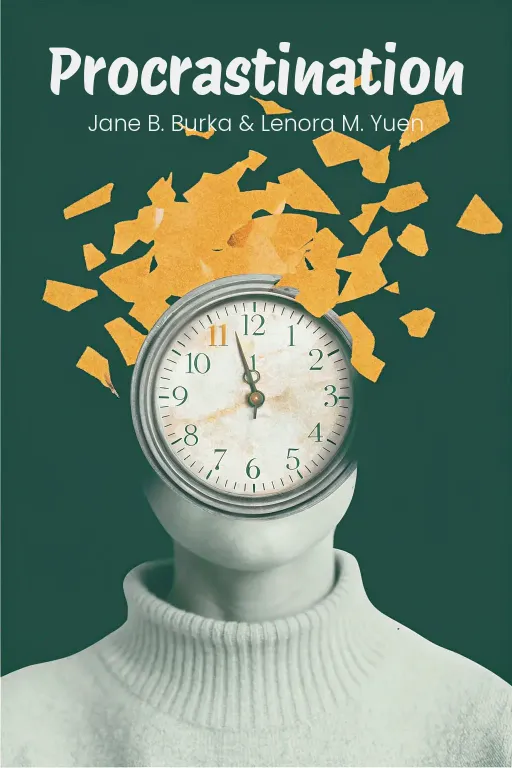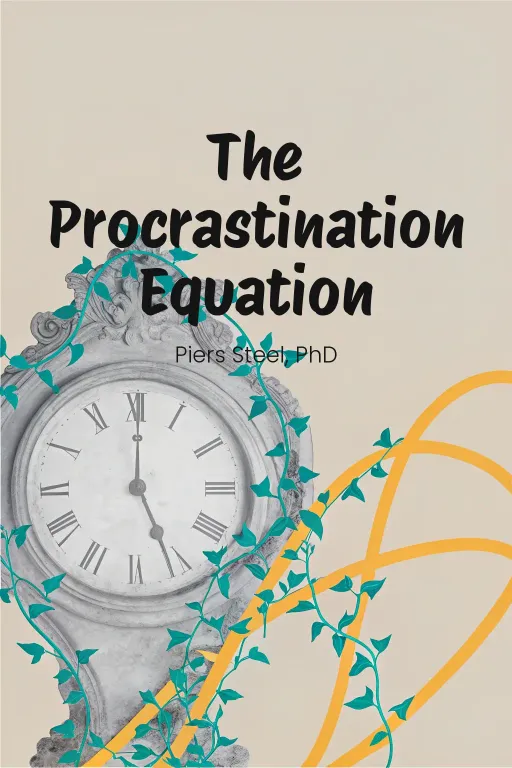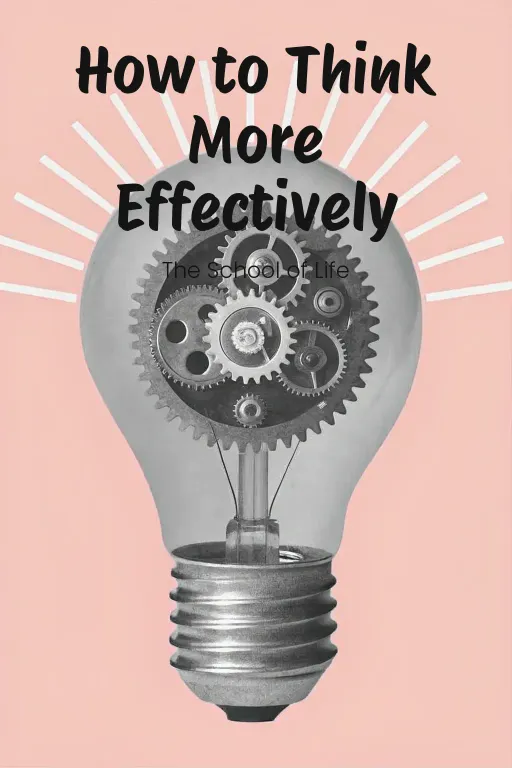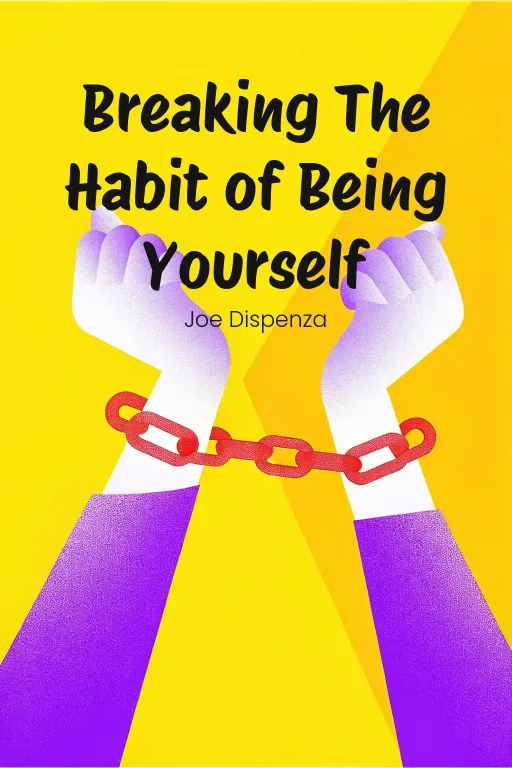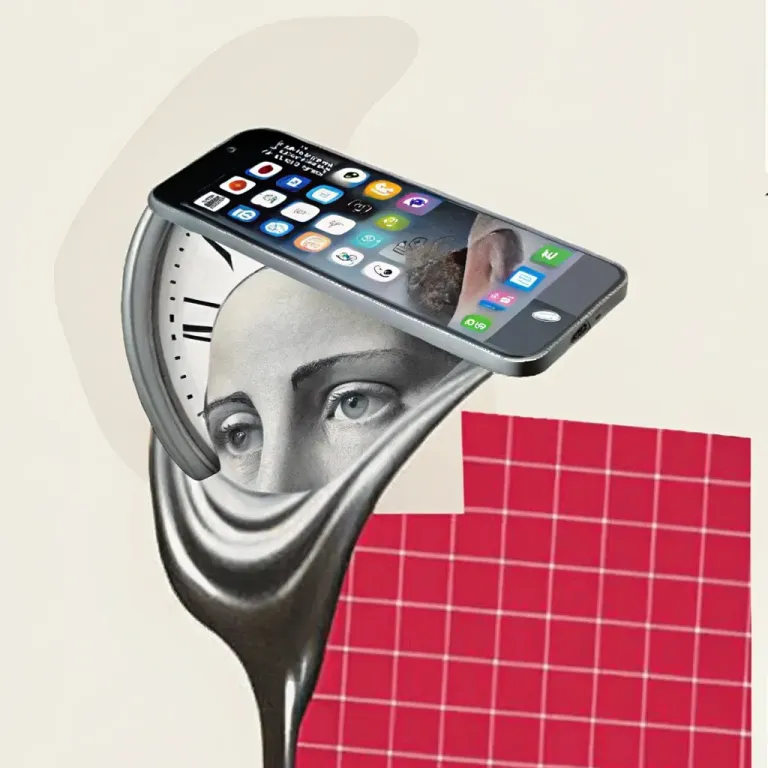
Beat Procrastination: Reclaim Your Time!
Podcast by Beta You with Alex and Michelle
How to Stop Putting Things Off and Start Getting Stuff Done
Beat Procrastination: Reclaim Your Time!
Part 1
Alex: Hey everyone, and welcome! Today, let's talk procrastination, something I think we all struggle with. That little voice that says, “Just a few more minutes,” while your to-do list grows longer and longer. Michelle: Oh, you mean the voice that says, “That urgent email? Nah, let's alphabetize the spice rack first.” Yep, intimately familiar with that one. Alex: Exactly! But here's the thing: it's not just laziness. In “The Procrastination Equation,” Piers Steel argues that it's actually a complex mix of psychology, biology, even society. He uses, believe it or not, an actual equation to explain it. Michelle: An equation? Seriously? My brain's already running for the hills... Sounds complicated. Alex: Relax, it's not about calculus. It's a framework to helps us understand why we put things off, even when we know we shouldn't. Steel uses science, stories, and history to show us the roots, the impact, and how to fix it. Michelle: Okay, so what's the plan for today then? Alex: Let’s dive into three key areas. First, we'll explore the psychology and evolutionary roots of procrastination. Why is this seemingly hardwired into us? Michelle: So you're saying my Stone Age brain is to blame? That’s a relief, actually! Alex: Pretty much! Second, we'll look at the consequences – how procrastination can affect your health, finances, and career, not just your schedule. Michelle: Fantastic, so now I can feel guilty and stressed about it. Wonderful. Alex: And finally, the good part! We'll delve into science-backed strategies to overcome procrastination and get things done. Think of it as turning the math of delay into the art of action. Michelle: A way out of the procrastination trap... Alright, you’ve got my attention. I'm ready to tackle this... eventually.
Understanding Procrastination
Part 2
Alex: So, Michelle, speaking of "eventually," let’s tackle the big question: Why do we procrastinate? It's not just laziness, you know, that "I don’t feel like it" thing. It’s this really complex battle happening in our brains between the limbic system and the prefrontal cortex. Michelle: Brain versus brain, huh? Sounds like a B-movie title. So what's going on in there? Alex: Well, the limbic system is the emotional, impulsive part of our brain. Think of it as the "live for today" voice. And then you have the prefrontal cortex – the rational, planning part, like the CEO. Procrastination happens when the limbic system overpowers the prefrontal cortex. Michelle: Ah, so the troublemaker is staging a coup in my brain's boardroom. But if I know I should be doing something, like, say, finishing a report, why does this "instant gratification" gremlin win every time? Alex: It’s all about how our brains process rewards. The limbic system loves quick hits of dopamine from things like social media or binge-watching. Tasks like writing a report, well, they don’t offer that instant pleasure. You know it’s important, but your brain prioritizes what feels good now. Michelle: And now my brain not only procrastinates but also piles on the guilt when I miss a deadline. Alex: Exactly! And that guilt becomes a psychological weight, making you want to avoid the task even more. It's this awful cycle: avoid, feel bad, avoid even more. Michelle: Procrastination just building on itself... fantastic. But isn’t this a modern problem, Alex? I mean, Cicero didn't have TikTok to distract him, right? Alex: Oh, procrastination is ancient, Michelle! Cicero actually complained about procrastinators in his speeches. He even saw it as a societal flaw. Think about Mark Antony – Cicero blamed his delays in military decisions for weakening Rome. It's not so different now, except instead of armies losing wars, we’re losing hours to Instagram. Michelle: Wow, procrastination and the fall of Rome… Suddenly I feel a lot of pressure to change my ways. Alex: Well, history offers some practical insights. Consider agrarian societies. Farmers couldn’t put off planting – their survival depended on it. That urgency reinforced the idea that procrastination wasn’t just irresponsible, it was dangerous. Michelle: Makes sense. No planting, no harvest. But do you think they procrastinated less because life depended on it, or because they just had fewer distractions? Alex: Probably a little of both. Those technological distractions have really changed things. Back then, delays were often external – waiting for the weather. Now, we face internal delays because our brains are fighting against endless, tailored online content. Michelle: “Tailored” is key. Social media, for example, is designed to hook us. Every like, every comment, it’s hitting that dopamine pathway, right? Alex: Absolutely. It's almost like these platforms have hijacked our reward system. A notification pops up about a trending topic. Whether it’s news, memes, or a viral video, she takes “just a quick look,” which turns into hours. That click can derail her entire day. Michelle: So instead of just one delayed report, now she has a spiral of stress, missed deadlines, and probably a side-eye from her boss, all because of a ping on her phone. Alex: Right, and her case highlights something deeper. This battle between our primal instincts and modern technology isn’t just psychological – it’s actually evolutionary. Michelle: Let me guess – our evolutionary wiring isn’t designed for this level of distraction? Alex: Not at all. Our ancestors lived in a world where immediate rewards like food or shelter meant survival. Long-term planning wasn’t as critical because the future was uncertain. We still have that wiring, but now it backfires. Saving for retirement feels abstract, while spending that paycheck now is tangible and satisfying. Michelle: So back in the day, our evolutionary brain was all about "Grab that fruit before someone else does!" but now it’s saying "Scroll through cat videos instead of making long-term career moves!" Alex: That’s a good way to summarize it. And there was a study that kind of proves this. Scientists gave pigeons a choice between a small, immediate reward and a larger, delayed reward. And guess what? The pigeons almost always went for the instant gratification. Michelle: So, we're not that different from pigeons when it comes to impulse control. Good to know. Alex: In a way, yes. Sarah’s report struggle is her evolutionary instincts clashing with modern responsibilities. Her brain isn’t naturally wired to choose the long-term benefits of submitting the report over the quick dopamine hit from social media. Michelle: I see the evolutionary mismatch. But hearing this still feels slightly… depressing. Do we even stand a chance against these deeply ingrained patterns? Alex: There’s hope! By becoming aware and using intentional tools, we can change how we respond to these impulses. From reframing future benefits to using website blockers, there are techniques to break procrastination’s hold. Understanding why is the first step. We’re laying out all the threads here – the psychological, historical, technological, evolutionary – that are tied into procrastination. Michelle: So, we're basically products of ancient survival instincts and modern social-engineering algorithms. No wonder this feels like an uphill battle. Alex: It is. But the more we understand how deeply rooted procrastination is, the better prepared we are to confront it. That’s the foundation we’re building here – because you can’t solve a problem if you don’t understand what’s causing it, right? Michelle: Okay, Alex, I might need to rethink what's behind my "I’ll do it later" moments. So, where are we headed next?
Impacts of Procrastination
Part 3
Alex: So, now that we understand the roots of procrastination, let's dive into the real-world consequences. Recognizing how much it impacts our lives can help us see that addressing it isn't just a "nice-to-do," but a "need-to-do." Michelle: Ah, so we're moving from "why we do it" to "how it quietly messes everything up," like our finances, health, and careers? Okay, I'm listening – with a healthy dose of anxiety, I might add. Alex: You're right, because procrastination can seem harmless in the moment, but the effects can be pretty big. Let’s start with finances, one of the most obvious areas. Remember those procrastination stats we talked about? Only 29% of procrastinators pay off their credit cards each month, and procrastination drives up interest and debt. Michelle: Let me guess: people put off paying bills, and then it avalanches into a total financial mess. Alex: Exactly. People think they'll catch up later, but missed payments can “really” hurt you with policies like "universal default." Your interest rate can jump up, and before you know it, you're carrying over $10,000 in debt. It becomes a cycle: delays increase debt, which creates stress and leads to even more procrastination. Michelle: So, financial procrastination isn’t just a "later-me" problem; it affects everyone around you right now. That debt is like an anchor dragging everything down. What about retirement planning? I’ve heard putting that off can be “really” damaging. Alex: Absolutely. Delaying saving for retirement is especially bad because you miss out on the magic of compound interest. The earlier you start investing, the less you need to put in to get the same result. But people often postpone it, thinking they'll have plenty of time. Then they have to play catch-up with much bigger contributions, which isn't possible for everyone. Years of delay can make a secure retirement almost impossible. Michelle: So, putting off saving or paying down debt is basically extending our future stress. Great. But beyond money, what about our health? Surely procrastinating there is even riskier – life and death, right? Alex: It definitely can be. One heartbreaking example is avoiding important health screenings. Think of Katie Couric’s late husband. He put off a colonoscopy until it was too late, and his cancer was too advanced. It’s not unusual, millions of people delay check-ups. They know it’s important, but they can’t overcome their anxiety. Michelle: So, the fear of a little discomfort now outweighs the risk of, you know, dying in ten years. That’s… pretty serious. I bet a lot of people can relate to that avoidance. Alex: They can, and it makes sense. Our brains are good at justifying delays, especially with health. The logistics, the discomfort, even the fear of bad news – it all feeds the cycle. But the cost of waiting is huge: higher treatment costs, fewer options, worsening conditions, and even shorter lives. Michelle: Wow. Procrastination could be taking years off people's lives while they’re just avoiding a bit of inconvenience. What about careers, then? I'm guessing work is a prime spot for procrastination. Alex: Absolutely, and the consequences are severe. Whether we are in classrooms or offices, procrastination hurts performance. Students often fall into the "intention-action gap," where their plans get derailed by instant gratification. A classic example is the student who puts off that big research paper until the night before, turning in something rushed and subpar. Michelle: And there goes a grade – or maybe an internship. But students eventually graduate out of those academic consequences. What happens when that behavior sticks around into adulthood? Alex: It doesn't get easier. In the workplace, procrastination leads to missed deadlines, delayed projects, and poor preparation – all of which damage your reputation. Eventually, you lose trust and opportunities. Promotions go to people who get things done, not those stuck procrastinating. Over time, careers stall, satisfaction drops, and you feel stuck. Michelle: So, it's this cascade of financial trouble, health problems, and career stagnation just waiting for us when we procrastinate. But surely this isn’t just a personal problem, Alex, it must spill over into society, right? Alex: Exactly. Procrastination also has massive economic effects, we see that with things like the workforce productivity. Studies show that employees spend about two hours a day procrastinating – that’s 414 hours per worker every year. In the U.S., that adds up to over $1 trillion in lost labor. Michelle: That number is… mind-blowing. And wait, it’s not just avoiding tough tasks, right? It’s all the little distractions too – endless emails, pointless meetings, and social media stealing our attention. Alex: Precisely. Instead of essential work, people do simpler, less important tasks. Think about critical responsibilities – like planning next quarter’s strategy – getting pushed aside for cleaning up the inbox or scrolling through news feeds. By the time they finally get around to those high-value tasks, opportunities have passed, and they’ve lost their competitive edge. Michelle: And then there's the government. Don't tell me procrastination hasn't wormed its way in there too. Alex: Unfortunately, it’s everywhere. Political inaction often blocks essential reforms. Climate change, for instance, is a prime example of procrastination at the policy level. Politicians often put off sustainable solutions for short-term gains. Delay only increases costs with rising emissions and worsening crises. Michelle: And when governments stall on things like healthcare or infrastructure, that ultimately widens the gap between promises and reality, right? Alex: Exactly. When gridlock stalls progress, it fuels frustration, erodes trust, and affects the most vulnerable communities the most. The cost of delays in policy-making, from education to public health, is huge. Michelle: Okay, so the stakes of procrastination, from your own bank account to the future of the planet, are incredibly high. It's a bit scary to realize how far-reaching even a small delay can be. So, where does that leave us? Alex: With the need to act. Procrastination isn't just about losses down the road, it creates a ripple effect of negative consequences that touch all parts of our lives. Recognizing the size of this problem is the first step in tackling it seriously.
Strategies for Overcoming Procrastination
Part 4
Alex: So, realizing how much procrastination messes things up for us, we should definitely talk about what we can actually “do” about it, right? That's our focus here—turning insights into action. We're moving from understanding why we procrastinate to actually stopping it. Michelle: Okay, the 'how-to' part. I'm picturing some serious tools coming out of the procrastination-busting toolbox. What's the overall strategy? Alex: We'll cover five key areas: goal setting, habit building, impulse control, realistic optimism, and reward systems. Think of it as a step-by-step route to turning things around. Let's dive into goal setting first – it’s really fundamental. Michelle: Right, but I've seen "set a goal, get results" advice a million times. The gap between knowing it and doing it is still huge! How is this different? Alex: Good point. It's all about being specific. Procrastination loves vagueness. The clearer the goal, the better. Piers Steel talks about using frameworks like S.M.A.R.T. – making sure goals are Specific, Measurable, Achievable, Relevant, and Time-bound. For example, instead of saying "I need to work on my presentation," you say "I'll finish three draft slides for my presentation tonight between 7 and 8 PM." See how that cuts out any excuses? Michelle: Ah, so no wiggle room. You're basically tricking your brain before it gets sidetracked. Smart. Alex: Precisely! And break tasks down into smaller steps. Look at Joe Simpson, the mountaineer. He was seriously injured and alone on a freezing mountain. To survive, he set himself "mini-goals." He didn't focus on the impossible distance back to camp. He just told himself to reach the next rock, then the next. That saved his life – and it works for everyday stuff too! Michelle: Wow, I never thought goal setting could be life-or-death. But what worked for him, I guess, could work for huge tasks like tackling a never-ending project or cranking out a massive report. Alex: Exactly! Facing that mountain of work? Focus on that first, tiny step. Set those micro-goals. Build momentum, even if it seems slow at first. Add daily planning, time-blocking – all that structure takes the stress out of it. Michelle: Got it. Less ambiguity is key. But just setting goals isn't enough, right? What's next? Alex: Next is building positive habits. Consistency bridges the gap between wanting to do something and actually doing it. Habits are your secret weapon here. The trick is to match habits to your energy levels – your circadian rhythm. Michelle: So, morning person vs. night owl stuff? Because I'm a total night owl. My mornings are useless. Alex: Exactly! Your energy highs matter. If you focus best at night, schedule your important tasks then, instead of forcing yourself to work in the morning. But whatever your rhythm, physical health is essential – sleep, diet, exercise. Neglecting those things doesn't just lower your energy. It makes procrastination worse. Michelle: Okay, devil's advocate time. What about those who think they’re being productive by skimping on sleep or fitness? Like, pulling an all-nighter once or twice a week? Alex: They're shooting themselves in the foot, even if it feels productive in the short term. Losing sleep kills your focus and makes you impulsive. It's fake productivity. Piers Steel suggests simple things like sticking to a sleep routine and light exercise – like a daily walk – as must-dos for being productive. Take care of your body, and your mind will follow. Michelle: Alright, rest and balance. It all makes sense. But what about those urges to just “do” something else? Combating impulsiveness – as someone who gets distracted by every buzz from my phone – feels impossible. Alex: Impulsiveness is a big problem, but you can deal with it directly. Precommitment is a useful technique. You know the Greek myth about Ulysses and the Sirens? Michelle: The one where he ties himself to the mast so he doesn't wreck the ship, right? Alex: Exactly! He knew he'd be tempted, so he stopped himself ahead of time. You can do the same. Modern precommitments could include deleting social media during work hours, setting strict focus timers, or even betting money with a friend that you'll finish a task on time. Michelle: So you're either productive or out twenty bucks! High stakes! Alex: High stakes, but it works. Your environment matters too. A clean, distraction-free workspace minimizes temptation. Add a timer, keep phones out of reach, maybe even use noise-canceling headphones. The goal is to make focusing easier. Michelle: Let me guess, visual cues help too – like motivational quotes or reminders of why the task matters? Alex: Absolutely. A vision board or some well-placed sticky notes can keep you on track. But let's not forget the bigger picture: realistic optimism. Acknowledging both the challenges and the progress keeps your motivation real. Michelle: So, balancing being inspired with seeing those potential potholes? Alex: Exactly. Success spirals and mental contrasting drive this realism. Let's use mental contrasting. A marathon runner imagines crossing the finish line – exciting! – but they also face training in bad weather, waking up early, etc. This combination – aspiration and preparation – strengthens their commitment. Michelle: Sounds like a strategy for the pragmatic optimist. But even with progress, rewards must be part of the picture, especially considering our dopamine-addicted brains. Alex: You're completely right. Rewards are key to reinforcing effort. Think of self-reward systems, like short, fun breaks after productive work. Or lining up milestones – like submitting a report – with bigger treats, like a nice dinner. Michelle: Or, in my case, binge-watching Netflix without guilt. Too much? Alex: Not if it actually works! Positive reinforcement makes effort an enjoyable cycle. Each small success creates momentum and trains you to link work with positive outcomes. Over time, it becomes sustainable and self-perpetuating. Michelle: Alright, from fighting impulsiveness to celebrating wins – the escape route is packed with tools. It feels less like fighting procrastination and more like redesigning your life. Alex: Absolutely, Michelle. Procrastination doesn’t disappear immediately, but every step – every goal, habit, and reward – moves you closer to aligning what you do with what you want to do. It’s about progress, not perfection.
Conclusion
Part 5
Alex: Okay, let's bring this to a close. Today, we “really” dug into procrastination, didn't we? We looked at the root causes, its effects on our lives, and most importantly, strategies to overcome it. We uncovered the psychological battle going on in our heads, the personal and even societal price we pay for putting things off, and how specific tools—like clear goals, cultivating helpful habits, and pre-commitment—can help us move from just thinking about doing something, to actually getting it done. Michelle: Right, and let's not forget what science tells us; Procrastination isn't “really” about laziness, is it? It's more about how our brains are wired. But the upside is, once you start to understand those patterns, you can outmaneuver them with small, thoughtful adjustments. Alex: Precisely. So here’s food for thought: Procrastination doesn't just rob you of time. It also diminishes your potential, stunts your growth, and can even impact your wellbeing. But it doesn’t have to be this way. Just begin small: dismantle that huge task into manageable steps, celebrate every little success, and see how the momentum builds. Michelle: So, what’s one thing you've been putting off? Turn that into action item, today. Progress isn’t just something you aim for, after all — it’s a choice you make. Let's make it worthwhile.


